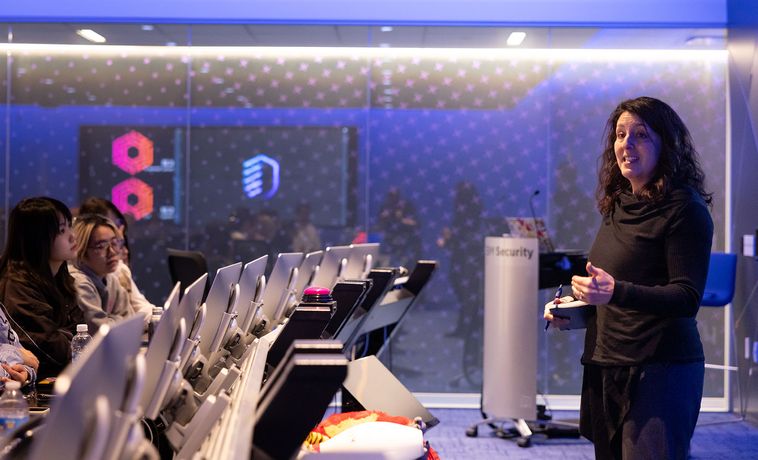The Art of Science Writing
SciCommers, a program that helps scientists and engineers improve their communication skills, moves from NPR to COM

When Joe Palca was a psychology PhD student at the University of California at Santa Cruz, he had an epiphany: he didn’t want to go into a career in research or academia, a common path for many science graduate students. Instead, he decided to pursue science journalism, first on the broadcast side, joining the CBS affiliate in Washington, D.C., then the print side, becoming a news editor at Nature and then a senior correspondent for Science magazine.
In 1992, Palca moved to radio and joined NPR as a science correspondent, where he still works today. Since 2012, he has hosted the series Joe’s Big Idea, which explores the ideas and motivations of scientists and inventors. “My goal for Joe’s Big Idea was to try to talk more about the science process than results,” he says. “I also wanted to show that scientists are real people who do real things besides being scientists. I want to change the way scientists are portrayed frequently as men in white coats, looking at slides and whatnot.”
As Palca developed Joe’s Big Idea, he also sought to create a program in conjunction with the series that would help students and scientists who, like him, perhaps don’t want to go into research or academia—or fulfill that stereotypical portrayal—but are also unsure of another path to explore. “I figured I’m sort of proof that you can leave academia and not be a failure,” Palca says.
In 2017, along with NPR producer Maddie Sofia, he established NPR Scicommers (originally called Friends of Joe’s Big Idea), a free program that helps scientists and engineers—including undergraduate and graduate students, post docs and faculty—develop their communication skills. “The idea was also to encourage scientists to consider communication an important part of their skill set because it is often overlooked,” says Palca.
I want to change the way scientists are portrayed frequently as men in white coats, looking at slides and whatnot.
Joe Palca
Palca and Sofia developed a Scicommers writers program, in which members can practice pitching their article ideas and then receive feedback from an experienced editor. Since they began, more than 100 stories written by Scicommers have made it into top publications including Scientific American, Smithsonian, Vox and Popular Science. They also created a mentor chat series, which brings in speakers to discuss various facets of science communication, including freelance science writing and science podcasting. Between mentor chats, Scicommers also have access to peer support through more than a dozen channels on the messaging app Slack, with topics such as #freelancing, #stem_inclusion and #jobs_fellowships. Since its inception, Sciccommers has grown from 100 members to more than 2,000.
A New Chapter at COM
About two years ago, Palca began planning for Scicommers’ NPR grant to run out and went on the search for its new home. “Ultimately, NPR is a media organization, and not an educational organization. We really wanted to find an educational space that could grow the program, someplace that was interested in promoting science communication as a mainstream activity, rather than something sort of on the sidelines,” says Palca. “BU’s College of Communication felt like the right place.” As of November 2021, the program has officially moved to COM—and has been rebranded as SciCommers with a capital C.
For now, much of the program will remain the same, with an emphasis on helping scientists polish their communication skills and get their work published outside of academia in popular publications. One thing Palca wants to make clear: members don’t need to have a BU connection. “The program is open to anyone. Our hope is for this group to be as diverse as possible,” he says. While Palca will remain a correspondent at NPR, he also plans to continue to be involved with the program.
“I’m excited about the arrival of the SciCommers global network of researchers,” says Mariette DiChristina (’86), COM’s dean. “It will help advance both BU’s and COM’s strategies around fostering research that matters as well as COM’s mission of improving understanding to address societal challenges, which are multidisciplinary and complex.”
For more information about COM’s SciCommers program, email scicomm@bu.edu.



